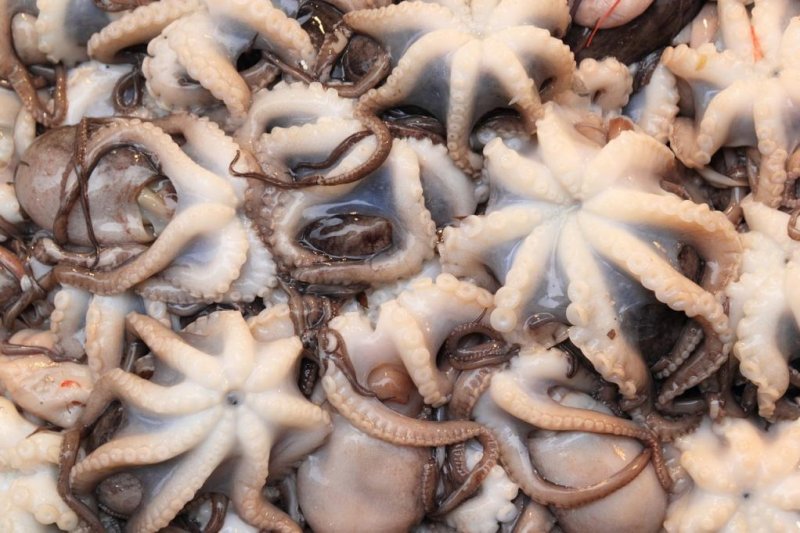Researchers say octopus farming raises a number of sustainability and ethical concerns. Photo by olafpictures/
Pixabay/CC
Jan. 24 (UPI) -- Octopus aquaculture projects are already in the planning stages on continents around the globe, but one group of scientists wants planners and policy makers to pump the breaks.
They argue octopus farming raises a variety of sustainability and ethical concerns that aren't being addressed.
"We are all living during the rapid domestication of aquatic species and research is almost entirely around the question of which aquatic animals we can farm, rather than which animals we should farm," Jennifer Jacquet, an assistant professor of environmental science at New York University, said in a news release.
Jacquet is the lead author of a critical analysis of octopus farming published this week in the journal Issues in Science and Technology.
"Universities and companies are investing time and money into farming octopus, which we believe is a big mistake," Jacquet said. "Mass producing octopus would repeat many of the same mistakes we made on land in terms of high environmental and animal welfare impacts, and be in some ways worse because we have to feed octopus other animals."
According to the new paper, efforts to scale-up commercial octopus farming are already under way in Spain, Mexico, Japan and China. The Japanese seafood company Nissui expects to bring a fully farmed octopus to market as early as 2020.
The diet of farmed fish is one of the main sustainability issues. Unlike animals farmed for food on land, most of which are herbivores, most aquaculture species are carnivores. Salmon, carp and catfish, for example, eat other fish.
Just as cattle operations and the demand for corn and grass put pressure of land resources, fish farms and fish feed put pressure on wild fish and invertebrates.
"Around one-third of the global fish catch is turned into feed for other animals, roughly half of which goes to aquaculture," researchers warn in their paper. "Many fishmeal fisheries are subject to overfishing and are declining."
Another sustainability issue, researchers argue, is the increasing levels of nitrogen and phosphorus pollution produced by uneaten feed and feces.
Additionally, there are ethical concerns.
"Octopuses exhibit cognitive and behavioral complexity, and they appear capable of experiencing pain and suffering," researchers write.
Authors of the new study hope their analysis will motivate both consumers and aquaculture farmers -- as well as policy makers -- to reconsider their buying habits and business plans.
"Right now, the farming of octopus is constrained by the technology, but the technology may well become available to farm octopus at an industrial scale. If such an opportunity comes, we hope that the serious welfare and environmental problems associated with such projects are recognized, and octopus farming is discouraged or prevented," the researchers conclude. "There are better directions for the future of farming."















